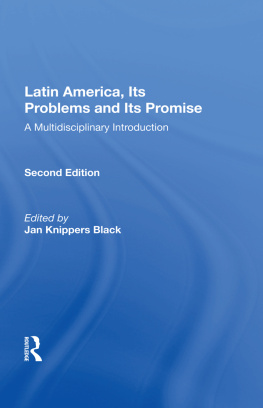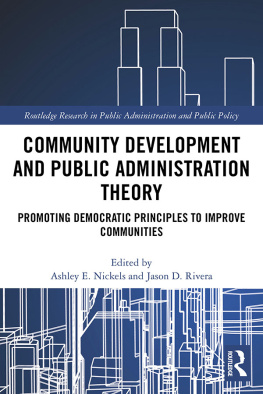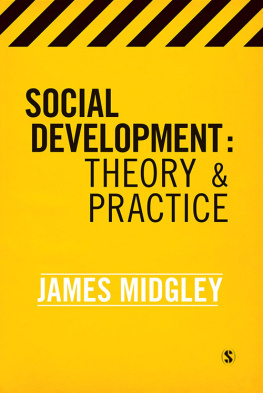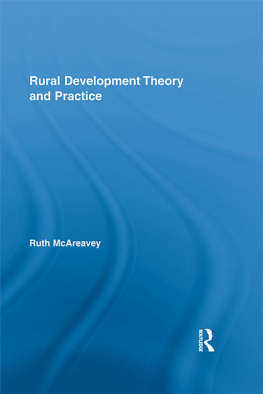First published 1999 by Westview Press
Published 2018 by Routledge
711 Third Avenue, New York, NY 10017, USA
2 Park Square, Milton Park, Abingdon, Oxon OX14 4RN
Routledge is an imprint of the Taylor & Francis Group, an informa business
Copyright 1999 Taylor & Francis
All rights reserved. No part of this book may be reprinted or reproduced or utilised in any form or by any electronic, mechanical, or other means, now known or hereafter invented, including photocopying and recording, or in any information storage or retrieval system, without permission in writing from the publishers.
Notice:
Product or corporate names may be trademarks or registered trademarks, and are used only for identification and explanation without intent to infringe.
A CIP catalog record for this book is available from the Library of Congress.
ISBN 13: 978-0-8133-3446-2 (pbk)
Talleyrand, asked for a definition of nonintervention, said it was a term used in politics that meant intervention. The problem with using a term common in public affairs is that such terms are adopted and adapted in accordance with particular needs and may in fact be employed by different spokesmen or at different times to convey contradictory meanings.
Development is such a term. It has no precise meaning, no generally accepted definition. Metaphors aside, society is not an organism with a genetically programmed innate potential. We cannot say of a society, as a gardener might of a flower, that it has become what it should be. Like other terms that have acquired a positive connotation, development is user-friendly: It means whatever one wants or needs it to mean.
Why, then, should we bother to study it? For academics, the answer is simple. A term or concept in such common and yet multifarious use may be liberating. It gives us license to poachto bring intellectual and scholarly traditions to bear on a broad range of issue and policy problem areas without becoming trapped by disciplinary, jurisdictional, cultural, or geographic boundaries.
There are more compelling reasons, however, for studying development. One is that, for better or worse, a lot of things are being done in its name that any well-informed person should know about. Another is that given the ambiguity and generally positive connotation attached to the term, useful things can be done in the name of development. Finally, the very open-endedness of the study of development gives us an incentive to elaborate our visions of what might bea wagon to hitch to a star.
For the most part, however, it has not been the study of development and underdevelopment that has led to a mushrooming of official development assistance programs; rather, the latter has given rise to the former. In fact, the study of development has flourished in recent years, but its very currency has in some ways made the study of it more difficult. The more public attention in the wealthier countries has been focused on the ravages of poverty and the maldistribution of the world's bounty, the more elaborate, abstract, and jargonized have become our rationales for what we do or fail to do about it. And the more the literature has proliferated, the more strained has become communication among those who approach it from different perspectives, disciplines, and professions. Let us deal briefly with each of these obstacles.
It should not be surprising that along with a wealth of insight and information, the flourishing of development studies has also brought forth misinformation, disinformation, and new conceptual vehicles for ethnocentricity and prejudice. In the first place, there has been a serious disjuncture among field practitioners, theoreticians, and policymakers. In the design of theories and policies, informational vacuums tend to be filled by prejudice. In the second place, policymakers routinely invoke widely shared moral ideals to justify the pursuit of cruder interests. And finally, nationalities and classes clearly favored by global inequality seek relief from impotence or guilt through the resolution of cognitive dissonance. That resolution is likely to take one or more of the following general forms: (1) there is no problem; (2) there is a problem, but it is not our problem; (3) there is a problem, but it is not our fault; (4) there is a problem, but we are solving it; or (5) there is no solution. These circumstances of ignorance, interest, and psychological need have nurtured a number of useful fallacies.
India's progress since independence in increasing life expectancy has been truly remarkable; the figure has risen from an average of twenty-seven years upon independence in 1947 to sixty-one years in 1994.
For the developing countries as a whole, it is certainly clear that progress has been made in the period since World War II in some areas (e.g., life expectancy), but there has been slippage in others (e.g., self-sufficiency); and it is not clear that progress or development, by any definition, is inevitable. Immanuel Wallerstein, who has identified 75-to 100-year cycles of "expansion" and "contraction," or prosperity and
At any rate, there does not appear to be any felicitous unidirectional locomotion, fueled by divinity or fate, that lets us off the hook. Nor is there convincing evidence that the thrust of policy to date on the part of rich countries and areas with respect to the less fortunate has been to the benefit of the latter. And while outcomes are not necessarily attributable to the intentions and efforts of policymakers and implementers, they are not wholly independent of them either.
Furthermore, although none would claim that there are easy ways for the "unpowerful" to influence policy, it remains true that "if enough people beat their heads against a brick wall, that wall will fall." In short, there is no legitimate rationale for escapethrough either complacency or despairfrom concern about the planet and its passengers.
In one version of a perhaps apocryphal story, a visitor to India asked Gandhi what he thought of Western civilization. Gandhi replied, "It would be a good idea."










